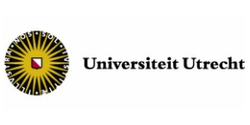PhD Position on Multimedia Analysis in the HAICu Project
Updated: 16 Oct 2024
Are you passionate about developing cutting-edge AI techniques to enhance interaction and communication across multiple modalities, such as text, pictures, audio, and video? Join the large scale HAICu project to help unlock the potential of cultural digital archives through multimodal use, providing richer context and a more comprehensive analysis of current complex issues in society. If this fits your expertise and interests, the Interaction Division of Utrecht University is seeking you!
Your job
We are looking for a PhD and a postdoctoral researcher to work within the multi-partner HAICu NWA-ORC project. This vacancy is for the PhD position, the Postdoc position is being advertised simultaneously: Postdoc Position on Multimedia Analysis in the HAICu Project. There are two research topics tackled in parallel for this project (see description below). Based on the applications, the topics will be assigned at PhD or Postdoc level. Both researchers will collaborate within the project.
This project is implemented by an ambitious consortium including many universities, knowledge institutions, archives, foundations, cultural institutions and business partners in the Netherlands. It aims to use improved access to digital heritage to tutor the Digital Citizen in the use of big data. It brings together AI researchers and Digital Humanities scholars to seek solutions to the problem of inadequate data-mining tools we have, aiming to derive information from the continuous stream of data about the present and the past. This will help citizens and other regular users, heritage curators and journalists who are interested in tapping heritage collections, as well as civic organizations and authorities interested in improving civic participation.
There are two research topics. You can indicate in your motivation letter whether you prefer one or the other.
- Research topic 1 targets visual and multimodal feature learning for news ecosystems, analysing the complex multidimensional feature space of visual information to support data-driven journalism. This includes experiments for accountability, transparency, inclusiveness, and misinformation. The key technology is multimodal deep learning, and its extensions for these additional targets.
- Research topic 2 targets audio and multimodal feature learning beyond words, such as intonation, tone, stress and rhythm, in relation to conveying emotion or messages, to support data-driven journalism. We will research audio features (e.g. for speech and music) and their relation to effective message conveying in news collections with audio and video, and innovate multimodal search by integrated feature learning in both visual and audio at the same time.
Research will include testing, validation and evaluation on large scale and interoperable collections, in cooperation with the societal partners in the project, including the Netherlands Institute for Sound and Vision, the National Archive, and the National Library of the Netherlands. The research will take place in collaboration with the HAICu fieldlab ‘Deep Journalism’, which develops functionality for searching for items about a similar topic from different archives and with various modalities to support news journalists.
As a PhD candidate in this project, you will conduct research under the supervision of a promotor and co-promotor. This position offers you the opportunity to further develop your academic skills and contribute to groundbreaking research. Next to that it provides a unique opportunity to network with an extensive scientific and cultural network of people in the Netherlands, and to seek answers to societal problems jointly with a great team of top scholars.
Requirements:
We are looking for a talented PhD candidate, with a keen interest in academic and professional development, who meets multiple of the following requirements:
- a (Research) Master’s degree in computer science or artificial intelligence;
- demonstrable machine learning skills;
- curiosity about societal issues and how AI can be employed for the benefit of the public;
- strong teamwork skills, as collaboration with other researchers and stakeholders is key to the project’s success;
- comfortable in doing multidisciplinary research and interacting with important stakeholders and eager to conduct innovative and thorough research;
- excellent writing skills in English.
Salary Benefits:
We offer:
- a position for four years (0.8 -1.0 FTE);
- a gross monthly salary between €2,872 and €3,670 in the case of full-time employment (salary scale P under the Collective Labour Agreement for Dutch Universities (CAO NU));
- 8% holiday pay and 8.3% year-end bonus;
- a pension scheme, partially paid parental leave and flexible terms of employment based on the CAO NU.
In addition to the terms of employment laid down in the CAO NU, Utrecht University has a number of schemes and facilities of its own for employees. This includes schemes facilitating professional development, leave schemes and schemes for sports and cultural activities, as well as discounts on software and other IT products. We also offer access to additional employee benefits through our Terms of Employment Options Model. In this way, we encourage our employees to continue to invest in their growth. For more information, please visit Working at Utrecht University.
32 - 40 hours per week
Princetonplein 5

